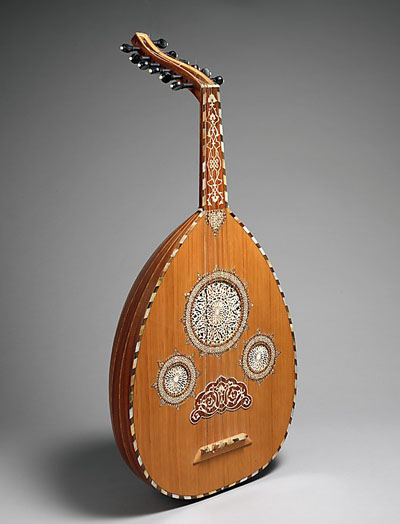 Music is as old as human history. Psychological studies stress that music soothes the feelings and beautifies senses.
Music is as old as human history. Psychological studies stress that music soothes the feelings and beautifies senses.
Singing and music have so far constituted a sociological phenomenon that distinguishes peoples and nations. Anthropological scientists believe that music plays an important role in forming the public taste considering it as one of the basic postulates in human culture
Pre-Historic era:
The first script, depicting Arab music, dated back to the Banipal inscriptions. The script illustrates how Arab prisoners used to spend their time in singing and playing music while they were working for their Assyrian masters.
At the beginning, music associated with magic, but it had soon moved to the temples and became a collective work after it was individual. So it became more organized and more consistent with the religious rites.
Pre-Islamic era
Most of the researchers consider that the roots of Arab music and singing date back to the fifth and sixth centuries AD, which are the, pre-Islamic era where Arabic language was represented in most beautiful http://syriatimes.sy/images in the poems Omrou’ al- Qays in addition to the emergence of some musical instruments.
The Arabs in that era did not respect singing as a profession.
Islamic era:
The reception ceremony, that was held for Prophet Mohammed( Peace be upon him) in the Al-Madeena al-Munawara city, where men and women rushed happily to receive him and participated in singing to celebrate his arrival, is considered a milestone in the history of Arabic music and singing .
Many of ancient and modern scholars insist on the prohibition of singing, but the prophet (PBUH) forbade only the kind of singing which hurts people’s feelings and shyness and did not agree with the teachings of Islam. Coptic Sereen was the first songstress in the dawn of Islam.
Umayyad era:
The Umayyad era had witnessed lyrical and musical renaissance supervised and supported by the Umayyad caliphs. Then, the musical renaissance adopted new ways depending on scientific methods. Younis al-Kateb, was the first who wrote in this field. The (Book of melody) is one of his most famous books. Abu al-Faraj al-Asfahani said Younis al-Kateb was the first to write about Arab music and singing. There were two schools for singing, one of them was in Mecca and the other was in al-Madeena al-Munawara. Each one of these schools had its own methods and lyrical style.
Jameela, Dalal, Rahma, Ma’bad, Malek, Habab and Sallama, were among the famous singers of this era.
More sophisticated musical instruments such as multiple strings lute, harp, tambourine, drum in addition to the violin, were used during that period.
Abbasid era:
In the Abbasid era, there had been a real revolution created by Ibrahim al-Mousli and his son Isaac al-Mousli and Ibrahim Ibn al-Mahdi. Singing and music took a new dimension due to the economic boom, which had had a clear impact on the state and then staff working in this field and in translation.
Therefore, music had become an independent science especially when art lovers began to read the books of (Aristotle) and other philosophers of Greece on music. They reached up to add new conditions that enriched the chapters of these books through their valuable theories in this field and created a new science calling it the music science. They did not stop at this point, a lot of researchers engaged in studying and analyzing the songs and music of other peoples and nations.
Al-Farabi, al-Kindi and Wasfi Eddin al-Rumi al-Baghdadi were among the most important researchers whose writings were main references for Western musicians. “Brothers Safa” were also among music lovers who gave musical aesthetic concepts an exceptional importance and worked to create a new concept of music. They stated deep ideas about the nature of music, and its psychological effects. Their philosophical and spiritual doctrine attributed beauty, in all its specters, to God.
In Andalusia:
Among the most prominent musicians in Andalusia was al-Farabi, who wrote a masterpiece on music, entitled the “Great Book of Music” and Ziryab to whom most important achievements in the process of musical development were attributed. He managed to reach very important musical achievements represented by spreading the orient music. He also established the first institute for music and developed the Lute by adding the fifth string to it.
To be continued.
Amal Farhat

